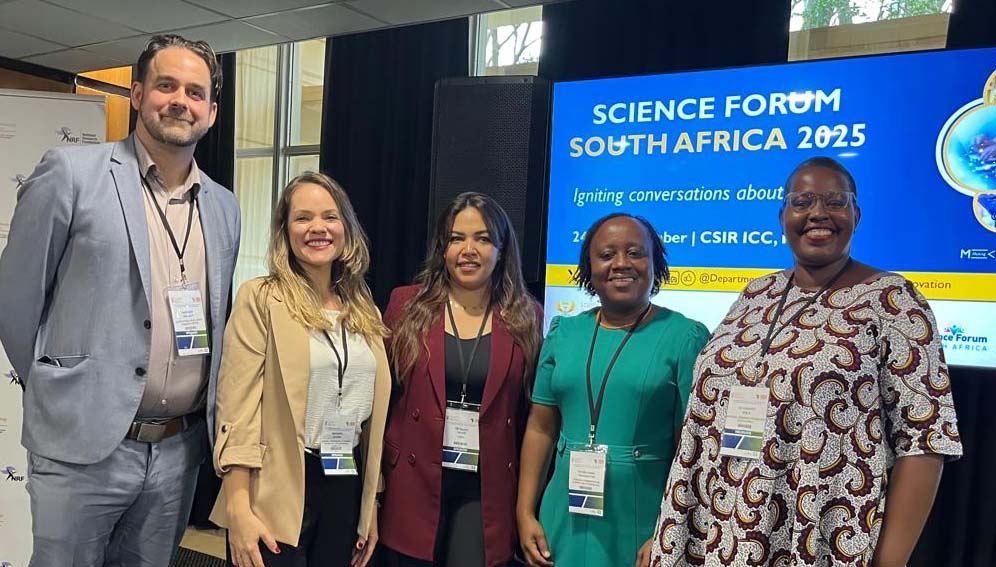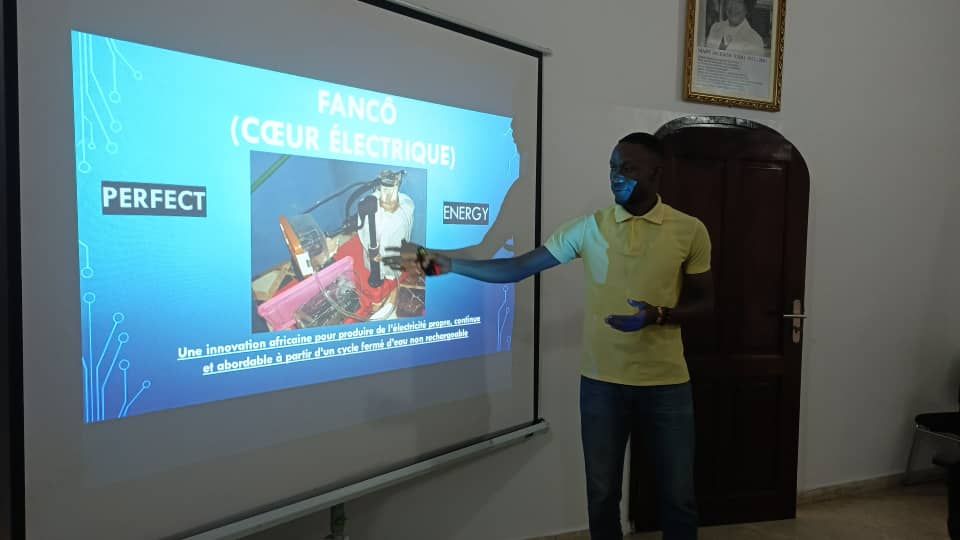SGCI News
SGCI-II G&I Project participating countries: Burkina Faso, Côte d’Ivoire, Ghana, Nigeria, Senegal, Kenya, Uganda, Tanzania, Rwanda, Ethiopia, Botswana, Malawi, Mozambique, Namibia, Zambia and Zimbabwe. A Final Learning Summit held in…
SGCI-II G&I Project participating countries:
Burkina Faso, Côte d’Ivoire, Ghana, Nigeria, Senegal, Kenya, Uganda, Tanzania, Rwanda, Ethiopia, Botswana, Malawi, Mozambique, Namibia, Zambia and Zimbabwe.
A Final Learning Summit held in Cape Town in February marked the end of the first cycle of the Gender and Inclusivity Project (G&I Project) of the Science Granting Councils Initiative II (SGCI-II) and the beginning of the second phase.
The summit was an opportunity to celebrate and reflect on a journey first started over three years ago by 13 African science granting councils committed to the adoption of a gendered lens to their work – and to map out the next steps for the second phase of the project.
Led by the Human Sciences Research Council in South Africa, in partnership with Gender at Work, Jive Media Africa and the Council for the Development of Social Science Research in Africa (CODESRIA), the G&I Project aimed at strengthening the capacities of SGCs in Sub-Saharan Africa to advance systemic change towards greater gender inclusivity in their respective science technology and innovation (STI) sectors.
The project applied a unique peer-learning methodology known as Gender Action Learning (GAL) created by Gender at Work, together with the Targeted Technical Assistance (TTA) process designed by the HSRC, to respond to councils’ needs, build partnerships and encourage ownership of the change process.
The summit, which marked the first time that all participants could meet “in the same room” after years of digital interactions as a result of COVID-19-related restrictions on travel and person to person contact, was a chance to take stock and ask: How far had each of the councils progressed towards the project’s key goals? And, importantly: what were the next steps in the second cycle of the gender and inclusivity journey?
The programme drew out key themes and considered some of the central obstacles facing science granting councils in their pursuit of a gender-transformative agenda, while at the same time highlighting the power of the grant-making cycle to help create more inclusive research systems – with positive outcomes for broader society.
Tangible progress
A tangible reflection of the progress made by councils was evident in the full-size posters unveiled at the summit. Created by each of the 13 participating councils with support from Jive Media Africa, the posters captured highlights of the work done by each council to increase participation of women and other underrepresented groups in STI; transformation of institutional policies and practices aimed at mainstreaming gender and inclusion at all levels of organisations; the integration of gender and intersectional analyses into research as a means of stimulating excellence.
As expected, the content varied from poster to poster, reflecting the differing priorities and emphases in each council, as well as the different contexts in which the councils were operating.
For example, the Kenyan National Research Fund (NRF) Kenya poster highlighted its success with the adoption of a “gender champion approach” to transformation. Gender champions are council staff members who show a clear commitment to gender issues and are specially trained to help promote greater gender-awareness in the workplace, and broader society. Working from a foundation of greater awareness, the NRF has managed to embark upon a number of programmes aimed at mainstreaming gender in all NRF activities.
In its own poster, the Zambian change team from the National Science and Technology Council (NSTC) described efforts to improve the mentorship available to women researchers seeking to access grants or to apply for leadership positions – with some encouraging results.
A number of other country posters flagged the development of new policy instruments or the establishment of new forums such as gender committees in the organisations and institutions.
Differences in the national contexts in which science granting councils operates and variations in the policy landscape were evident in the fact that not all councils had gender policies in place – either at the institutional or national level – at the time the project commenced.
While the value of written policy in gender-related change processes is a given, the implementation of policy once crafted often presents greater challenges, and this was a persistent discussion thread during the summit.
However, despite differences in emphases, priorities and context, all posters reflected strong signs of ‘intentionality’ in relation to gender and inclusivity in both the strategic thinking and day-to-day work of the councils.
Such intentionality or openness to transformation is a vital ingredient in any change process, particularly in a situation in which change is required on multiple fronts. As Prof Heidi van Rooyen, Principal Investigator of the G&I Project and Group Executive of the Impact Centre at the HSRC, noted, increasing the participation of underrepresented groups (“fixing the numbers”) in the research cycle is essential, but the change process does not stop there. It also becomes necessary to address the exclusionary cultures and norms that underpin institutional practices (“fixing the institution”) and the frequently exclusionary way in which research projects are identified and pursued (“fixing the knowledge”).
The fact that the design of research programmes is frequently at odds with the interests of women and marginalised populations gives science granting councils – key players in the grant making cycle – a particular responsibility when it comes to making the case for addressing gender and inclusivity in research and more generally, in the pursuit of social equity and inclusive public policy.
In the words of Lilian Hunt, the Equality, Diversity & Inclusion in Science and Health (EDIS) Lead in Wellcome’s Culture Equity Diversity and Inclusion (CEDI) team: “National research agencies are responsible for promoting excellent research and including G&I to make research more responsive to national needs.” Therefore, implementing a gendered lens on research would “make research better and the return on investment better”.
One of the enduring strengths of the G&I Project has been the unique action learning methodology – designed by project partner Gender at Work aimed at empowering councils and their individual members to be agents of change, particularly in an environment marked by tensions, complexity and epistemic contestation.
Recognising that transformation happens at both the level of the individual and the institution, the Gender at Work team encouraged participants to embrace a holistic approach, by recognising the value of their personal experiences of exclusion as well as their intellectual understanding of systemic injustice in their transformative efforts.
Next steps
Moving into the new three-year grant cycle, the G&I Project is to be rebranded the “Gender, Equality and Inclusivity Project” (GEI Project) so as to “foreground the need for full equality across genders and experiences that can cause exclusion and inequalities”. The new chapter is to include a sharper focus on strengthening the integration of GEI concepts and practices across the grantmaking and awardee support cycles.
Related News
Powering Africa’s science through stronger councils
Strengthening national science granting councils is emerging as one of the most effective pathways for improving how African countries finance and govern science for development. This was the focus of the thematic session on Financing Science for Impact held during the Science Forum South Africa…
Councils seek solutions to research financing crisis
African countries are working to strengthen research quality, ethical practice, and grant management through the Research Excellence and Good Financial Grant Practices Workshop. The Science Granting Councils Initiative (SGCI), together with the Association of African Universities and Senegal’s Ministry of Higher Education, Research and Innovation,…
Innovation awards boost Côte d’Ivoire’s national research drive
The Fund for Science, Technology and Innovation (FONSTI) opened the audition phase for the FONSTI Innovation Prize 2025, marking a decisive moment in a process launched earlier this year to strengthen Côte d’Ivoire’s innovation ecosystem. The auditions follow the official launch of the inaugural Innovation…
SGCI funded projects
Rwanda’s integrated approach to sustainable agriculture and nutrition
Project Titles & Institution Areas of Research Number of Projects being funded Project Duration Grant Amount In-Kind Distribution Council Collaboration with other councils





